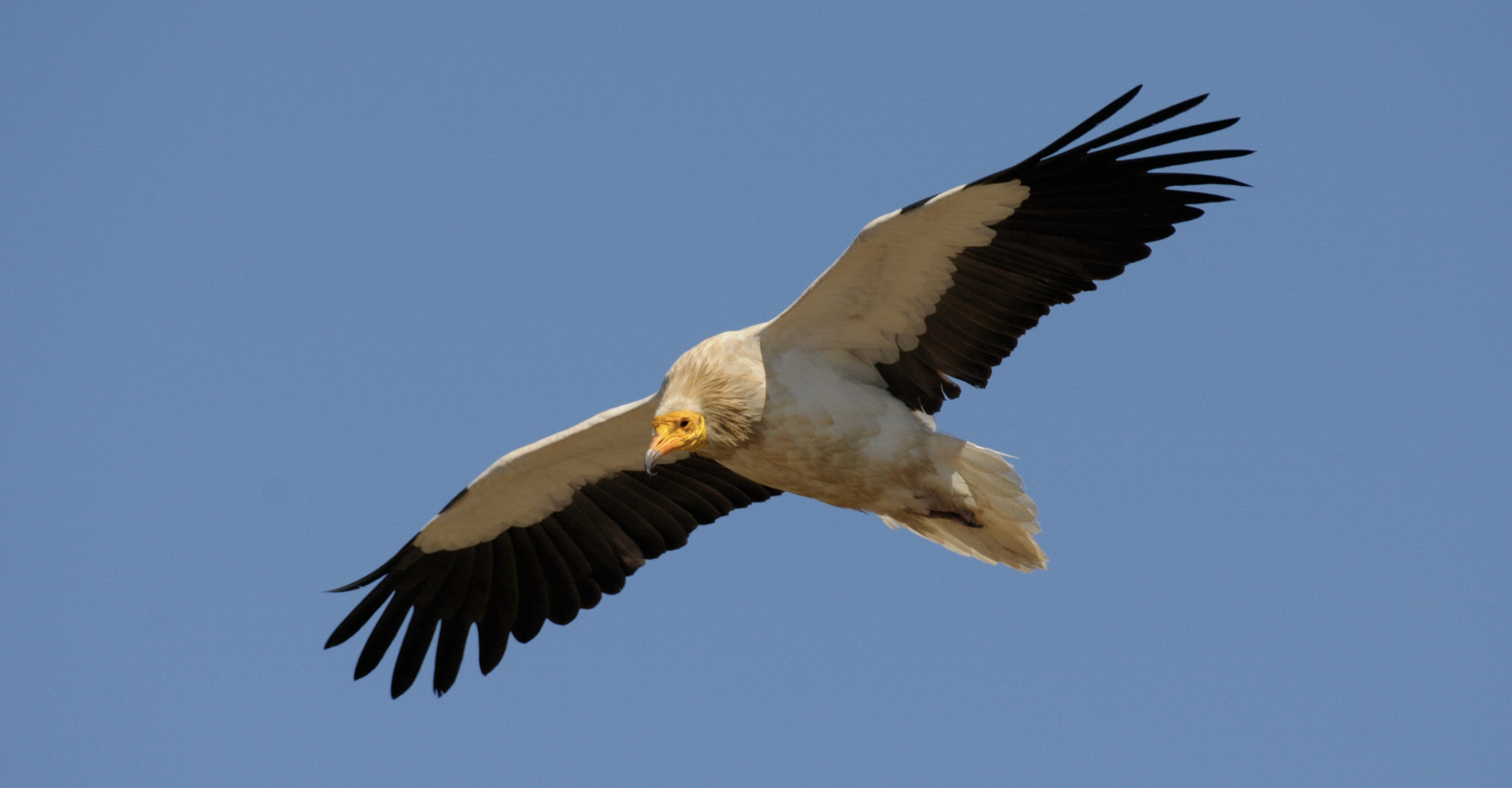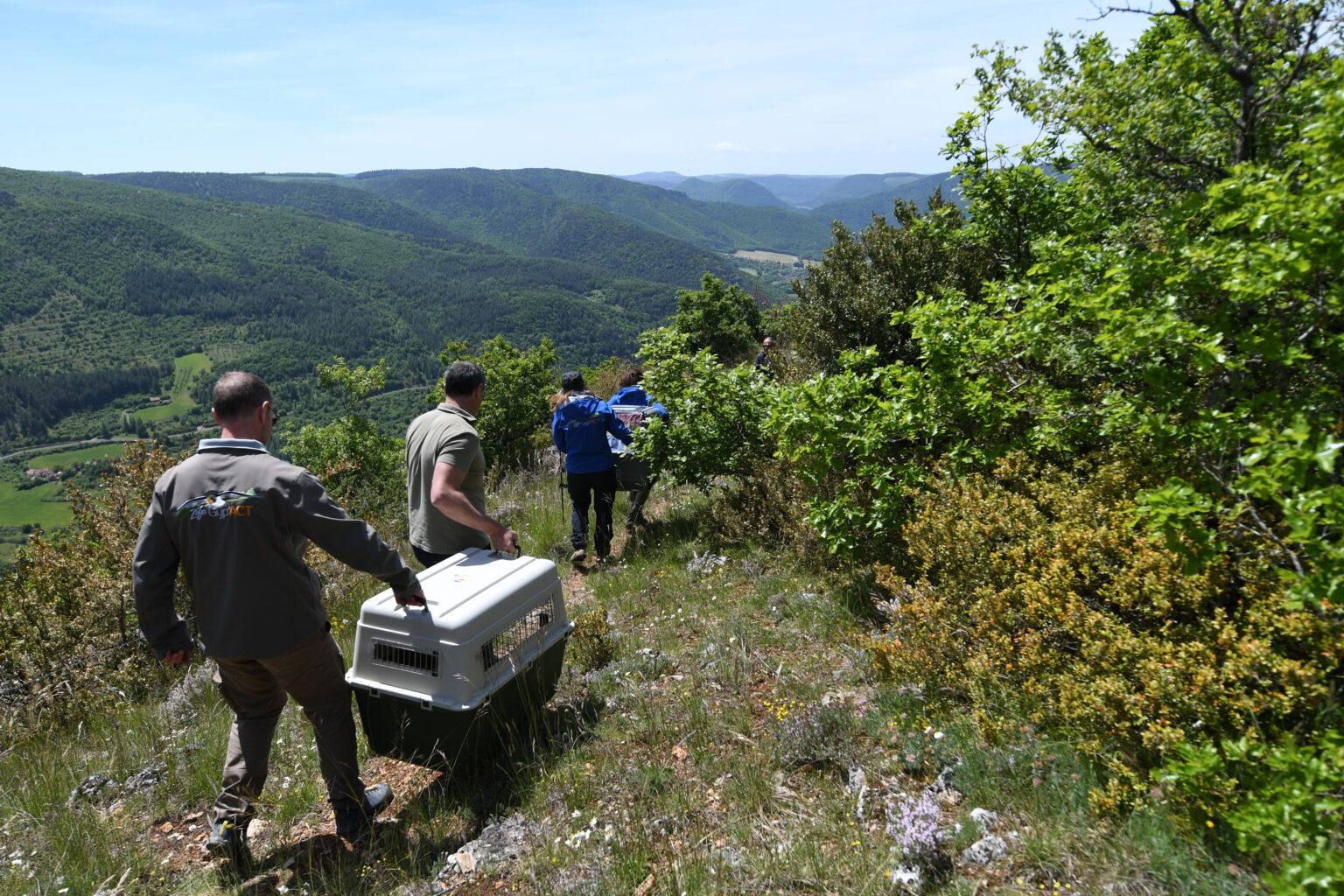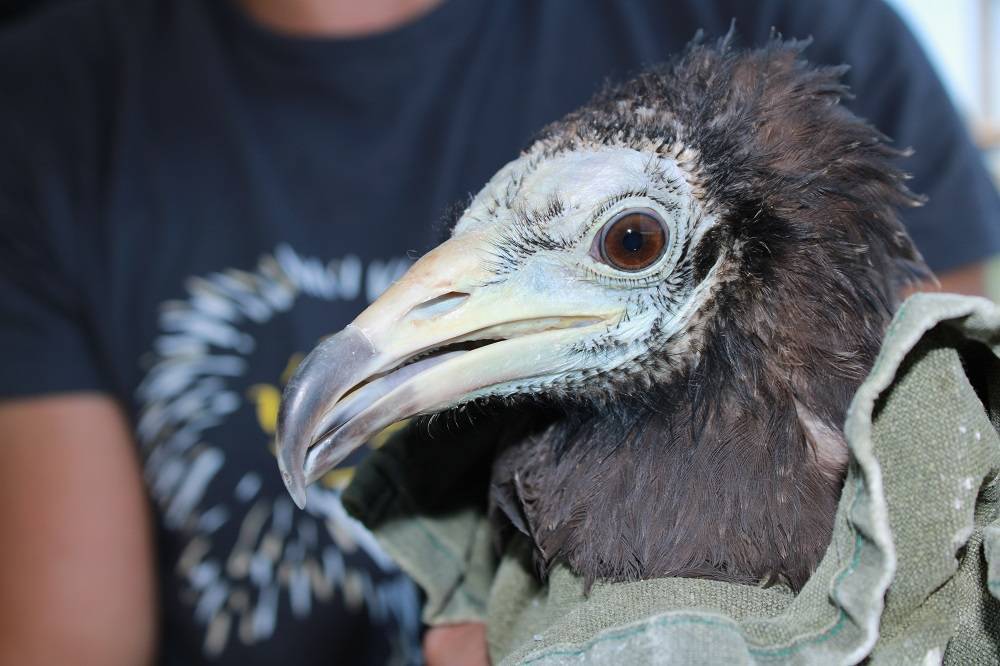
An Egyptian Vulture New LIFE team, led by the Bulgarian Society for the Protection of Birds (BSPB), recently released six more Egyptian Vultures in Bulgaria’s Eastern Rhodopes Mountains as part of the project’s reinforcement efforts.
Releasing captive-bred and wild-hatched Egyptian Vultures in Bulgaria
The project team released the six vultures using the delayed-release method, which proved to be the most successful way in terms of the survival of the young vultures. The Egyptian Vulture European Endangered Species Programme (EEP) of the European Association of Zoos and Aquaria (EAZA) generously provided the two captive-bred vultures. One Egyptian Vulture hatched in Schonbrunn Zoo and the other in Prague Zoo. The other four individuals were rescued as fledglings from the wild population in 2020 and 2021. After recovering in the Green Balkans’ Wildlife Rehabilitation and Breeding Center, the expert veterinarians gave the go-ahead to return the vultures into the wild.
Acclimatizing to their new home
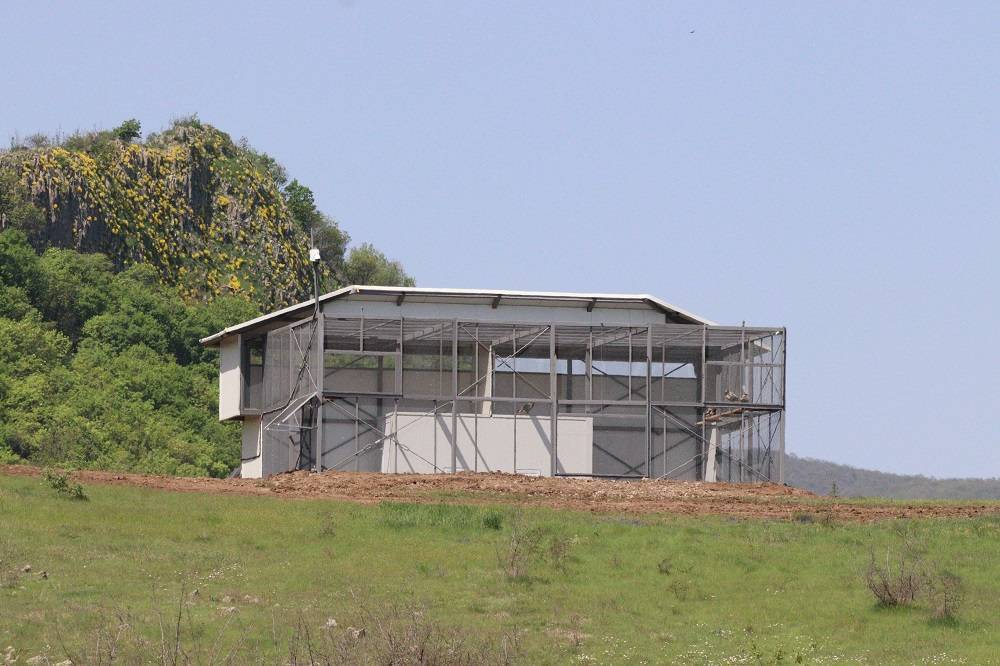
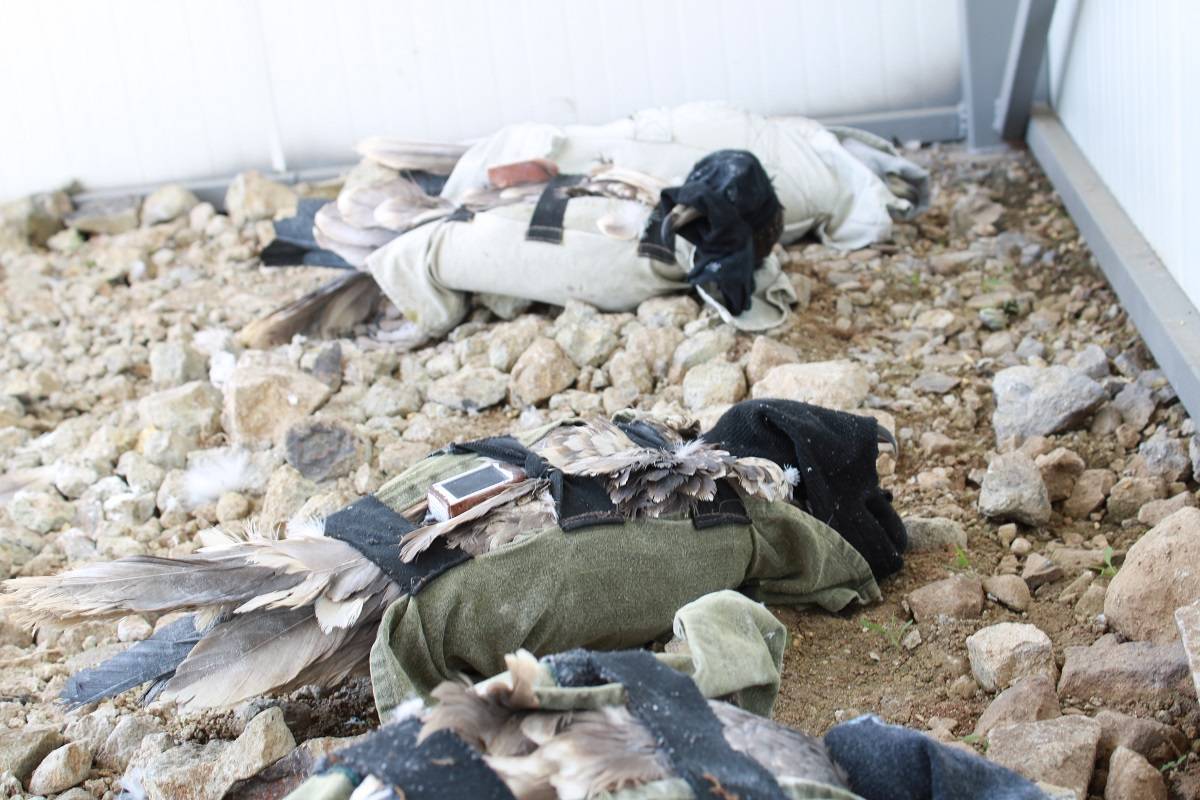
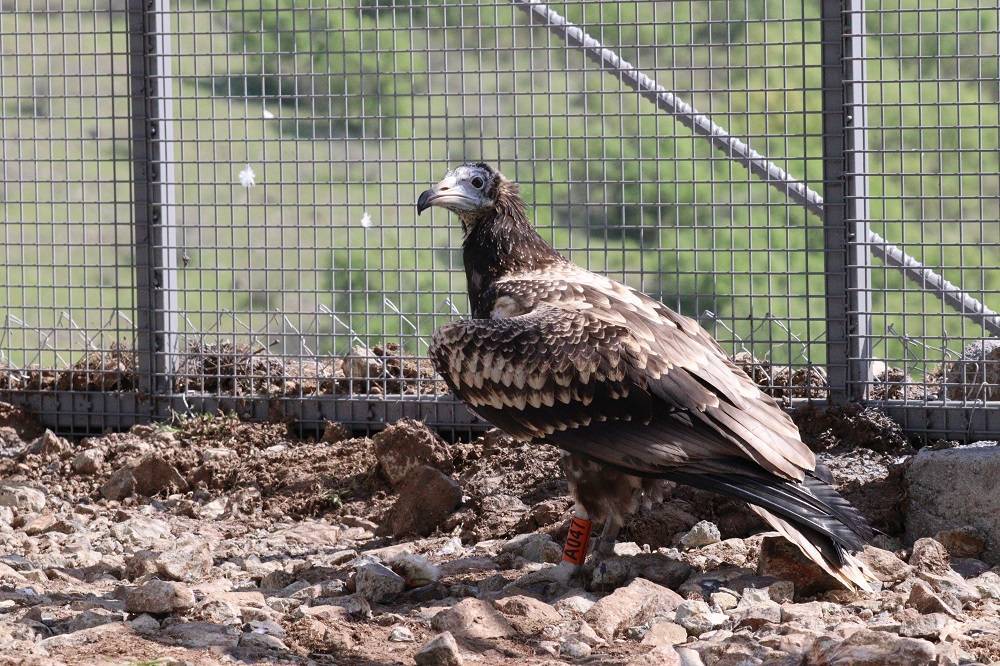
The young vultures spent about two months in a specially built adaptation aviary situated at the core of the Egyptian Vulture population in the Eastern Rhodopes, Bulgaria. This year, the project team constructed a more modern and extensive aviary, enabling vultures to fly more and better train themselves ahead of their release. The new facility called ‘School for vultures’ can also host a larger number of individuals and is located at a vulture feeding station, which receives daily visits by a high number of Egyptian Vultures and Griffon Vultures. Thus, the newly released individuals will interact with other vultures and learn from their behaviour.
Closely monitoring the vultures following their release
The project team equips all the Egyptian Vultures released in Bulgaria with GPS transmitters to closely follow their movements and fate. A BSPB team tagged them a week before the release alongside a veterinary examination done by the Green Balkans’ vets.
The first few days after the release are critical for the youngsters, so the project team closely monitors their progress in the field. They also regularly provide food at the feeding station to attract the vultures and keep them in this safe area until they gain experience and start exploring the wild nature of the Eastern Rhodopes.
Restocking the Egyptian Vulture population in Bulgaria
So far (2018 – 2021), the project released 13 Egyptian Vultures through the delayed release method in the Eastern Rhodopes, Bulgaria. Six of these individuals are still alive, five of which already returned to Bulgaria this year, signifying an important success for their conservation in the region.
All birds are donated to the Еgyptian Vulture New LIFE project with Antonin Vaidl’s assistance from Prague Zoo – coordinator of the Egyptian Vulture EEP of EAZA.
The Egyptian Vulture restocking efforts in Bulgaria is a collaborative effort with many partners involved: BSPB, Prague Zoo, EAZA, RSPB’s Centre for Conservation Science, Hellenic Ornithological Society, Green Balkans, WWF Greece, Macedonian Ecological Society, Albanian Ornithological Society, Protection and Preservation of Natural Environment in Albania, Zoo Botanico Jerez, Zlin Zoo, Schoenbrunn Zoo, Sofia Zoo and the Vulture Conservation Foundation.
The Egyptian Vulture New LIFE project

Working collaboratively, projects like the Egyptian Vulture New LIFE aims to reinforce the Egyptian Vulture population across the Balkans, which is Europe’s easternmost range for the species. By actively managing and restocking the population by releasing captive-bred birds, the project will support the small Balkan population, numbering between 60 and 80 pairs. The Egyptian Vulture New LIFE team is working to deliver conservation measures that eliminate major known threats such as illegal poisoning and electrocution in their summer breeding grounds. They also use GPS transmitters to monitor the population to help identify and combat the threats Egyptian Vultures face. Funded by the EU’s LIFE Programme and led by the Bulgarian Society for the Protection of Birds, the project has a partnership spanning 14 countries across Europe, the Middle East and Africa to protect the species all along their flyway.

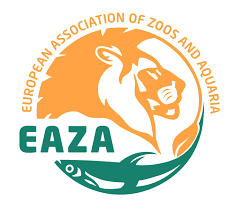



Text adapted from the Egyptian Vulture New LIFE article.

